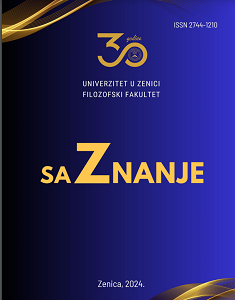YUGOSLAVYA’DA ORTAK KİMLİK İNŞASI VE İKTİDAR MEŞRULAŞTIRMA ARACI OLARAK 8 MART VE 1 MAYIS KUTLAMALARI
MARCH 8 AND MAY 1 CELEBRATIONS AS A MEANS OF LEGITIMIZING POWER INVENTED AND CREATING A COMMON IDENTITY IN THE YUGOSLAVIA
Author(s): Ömer AksoySubject(s): Cultural history, Social history, Recent History (1900 till today), Identity of Collectives
Published by: Filozofski fakultet, Univerzitet u Zenici
Keywords: Yugoslavia; creating identity; legitimization of power; March 8 International Women's Day; May 1 Labor Day;
Summary/Abstract: As a result of the migrations of various Slavic tribes to the Balkans since the 6th century, the region became one of the 3 largest Slavic expansion areas in Europe. These tribes, who spoke the same language, split into different ethnic groups under the influence of different social, political, religious and cultural developments in the historical process and developed their own ethnic dynamics. The region, which was under the influence of the Catholic Church on the one hand and the Orthodox world on the other, experienced a new acculturation process with Islamization as a result of the Turkish conquest of the region and the emergence of new ethnic formations among the Slavs became inevitable. This differentiation did not prevent the Slavic communities living in the region from splitting into new nations acting completely independently of each other, even though they belonged to the same blood and origin and spoke the same language. In the 20th century, with the establishment of Socialist Yugoslavia, the new government not only legitimized its power over the ethnic groups in the region through newly created traditions, but also encouraged a number of celebrations with the aim of uniting the ethnic formations living in the region under the same citizenship. At the same time, despite religious and cultural differences, these are practices that reveal the common Slavic spirit and worldview encoded in cultural genetics. In this article, we will discuss the use of March 8 and May Day celebrations among the South Slavs as a means of legitimizing power, as well as the function of these celebrations in reflecting the common Slavic worldview.
Journal: saZnanje
- Issue Year: 4/2024
- Issue No: 4
- Page Range: 818-824
- Page Count: 7
- Language: Turkish

